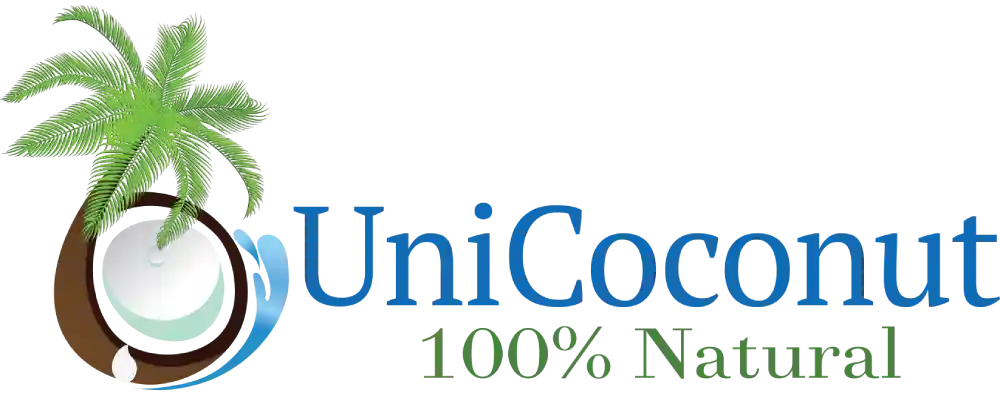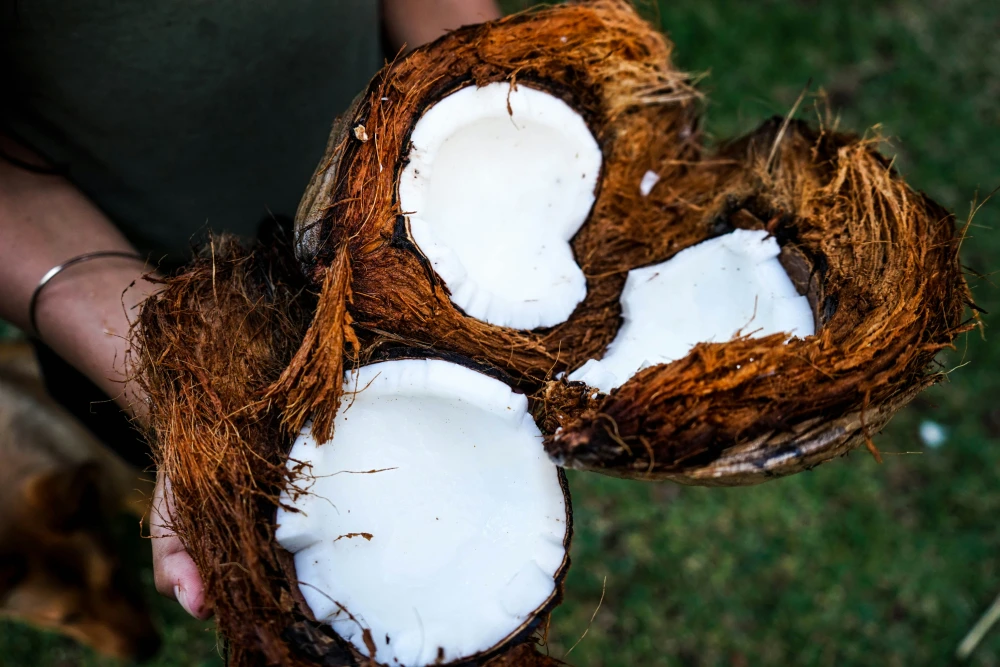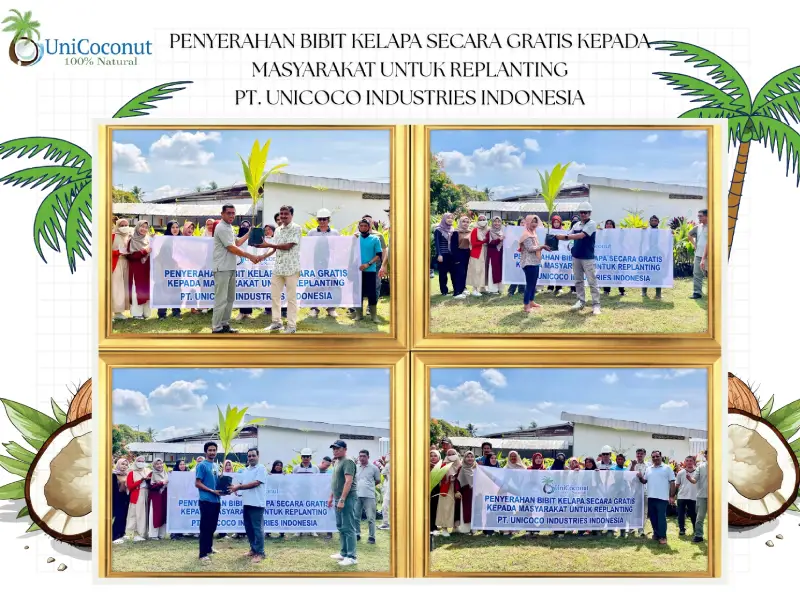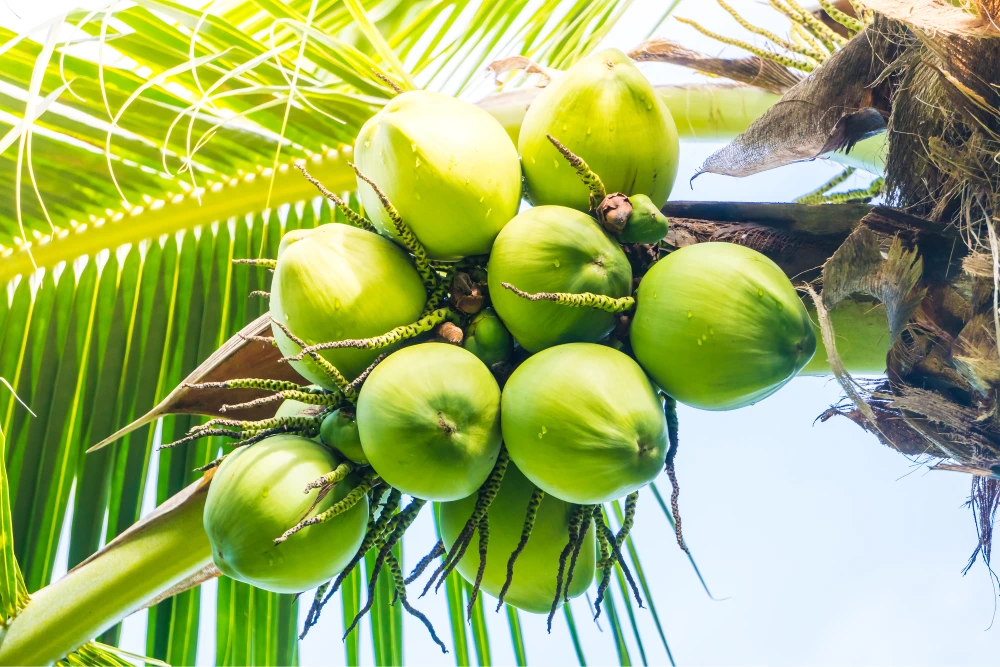The Coconut’s Hidden Value: Not Just Food Anymore
It’s easy to associate coconuts with refreshing beverages, creamy curries, and nutrient-rich oils. But behind every processed coconut lies a mass of by-products that, until recently, ended up in landfills or as animal fodder.
Now, those same husks and shells are being repurposed into:
- Biofuel & Briquettes: Coconut shells are carbonized to create charcoal or used as biomass fuel to power dryers and boilers in a clean-burning energy loop.
- Activated Carbon: Widely used in air and water filtration, coconut shell-derived carbon is now in global demand.
- Coir & Coco Peat: Extracted from the husk, these materials are being used in sustainable packaging, mattress fillers, hydroponic farming, and biodegradable garden products.
- Animal Feed: Pressed coconut residue (press cake) is nutrient-dense and processed into livestock feed, particularly in rural economies.
Every element has a use — and companies are building entire business verticals around the parts of the coconut once discarded.
Why Zero-Waste Coconut Processing Matters
- Environmental Benefits
Reducing organic waste means reducing methane emissions, land degradation, and environmental runoff. It also decreases reliance on fossil fuels through renewable alternatives like biomass energy and organic compost. - Economic Upside
Maximizing every part of the coconut improves raw material efficiency and opens new revenue streams. Exporters and manufacturers can diversify their offerings with value-added by-products. - Supply Chain Resilience
Localizing waste processing reduces disposal costs, strengthens rural economies, and fosters partnerships across industries — from agriculture to cosmetics to energy.
A Growing Global Market for Coconut By-Products
In 2025, the market for coconut shell-based activated carbon alone is projected to grow at over 8% CAGR, driven by rising demand in water treatment and air purification. Similarly, coir pith and fiber markets are surging due to their use in sustainable horticulture and biodegradable packaging solutions.
In short: waste is the new value — and coconut by-products are gaining international attention for all the right reasons.
Sustainability Is the New Standard — Not a Luxury
As governments and global buyers increase their focus on ESG goals and green procurement policies, brands that adopt circular processes are becoming preferred partners. Importers and retailers are now actively seeking suppliers that not only deliver high-quality products but can also demonstrate:
- Ethical sourcing
- Carbon-conscious processing
- Waste utilization metrics
- Sustainable packaging
In this environment, zero-waste operations are no longer an advantage — they’re an expectation.
Where Unicoconut Fits In
At Unicoconut, we’ve aligned ourselves with the principles of this global shift. Our sustainability strategy isn’t just about certifications — it’s about real practices with measurable outcomes.
We actively reuse coconut shells for biomass fuel, convert husks into coir, and ensure that excess coconut water and press cake are responsibly repurposed. These practices not only reduce waste and emissions but also lower operating costs and support local livelihoods.
💡 Did you know? Our zero-waste initiative diverts thousands of tons of by-product away from landfills each year — while powering parts of our facility with coconut-derived energy.
While we’re proud of our progress, the broader takeaway is this: sustainability is scalable when built into the core of your operations.
What Distributors, Importers & B2B Buyers Should Consider
If you’re sourcing coconut products in today’s market, here are a few key questions to ask your suppliers:
- Are they maximizing the coconut beyond milk or oil?
- Do they have a strategy for husk, shell, and water reuse?
- Are their operations transparent and environmentally certified?
- Can they provide sustainability impact metrics?
Choosing a supplier who prioritizes zero-waste coconut processing helps you meet your own sustainability goals — and tells your customers a story they’re proud to support.
Final Thoughts
The coconut is no longer just a fruit — it’s a symbol of how tradition meets innovation. From energy and agriculture to textiles and filtration, its so-called “waste” is now a valuable input in building a more sustainable global economy.
At Unicoconut, we’re proud to be part of this shift. But more importantly, we’re excited to collaborate with forward-thinking partners who want their sourcing to reflect purpose as well as profit.
Looking to work with a coconut processor that believes in zero-waste sustainability?
Explore our operations at www.unicoconut.com or connect with our team at contact@unicoconut.com.




